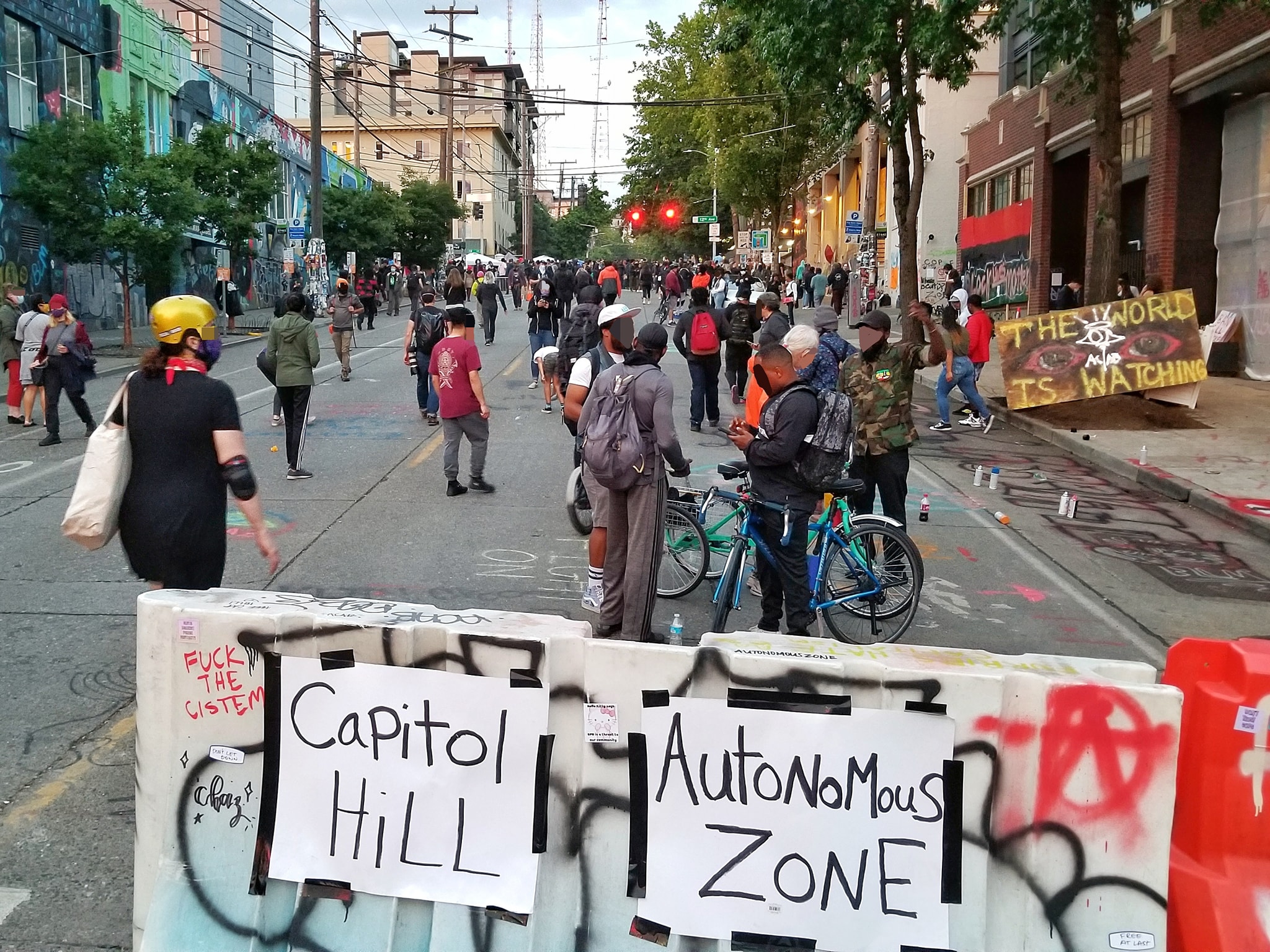
Chris Lange, FISM News
[elfsight_social_share_buttons id=”1″]
Seattle’s multi-million-dollar payout in a lawsuit over the deadly three-week Capitol Hill Occupied Protest (CHOP) of June 2020 should serve as a cautionary tale to the wise, according to Sam Spiegelman, an attorney at the nonprofit Pacific Legal Foundation.
“Seattle just learned a valuable civics lesson: No matter how important the cause, government cannot deprive owners of the right to access their property without first paying for it,” Spiegelman said in a recent op-ed published by The Hill.
City officials in Washington state’s King County seat agreed last month to pay $3.6 million to settle the suit brought by around a dozen local businesses and residents. Plaintiffs demanded compensation for business and property damage and accused officials of violating their constitutional rights by depriving them of access to their properties.
WHEN THE CITY SURRENDERED
The settlement came on the heels of a federal judge’s decision to sanction the city for deliberately purging thousands of incriminating text messages sent and received by city officials, including former Seattle Mayor Jenny Durkan, former city Police Chief Carmen Best, and fire chief Harold Scoggins, concerning the June 2020 armed occupation of six square blocks of the Capitol Hill neighborhood by Antifa and Black Lives Matter rioters. Included among recovered text messages were exchanges between the officials and Raz Simone, the alleged “warlord” of the so-called “autonomous zone.”
On June 8, 2020, after the killing of George Floyd by police in Minneapolis, then-Mayor Jenny Durkan ordered the Seattle Police Department to relinquish the entire residential-commercial neighborhood to the rioters, who renamed the area the Capitol Hill Autonomous Zone (CHAZ). Per Durkan’s instructions, the Seattle Police Department erected barricades blocking off ingress and egress to and from the area, which resulted in the displacement of local residents and business owners.
Absent any manner of police presence, rapes, robberies, and murders soared 250% in the 6-block section, including the cold-blooded shooting death of a special-needs teenager, as reported by The Post Millennial. The violent occupation lasted a full three weeks before police finally broke it up on July 1, 2020, notably after rioters vandalized Durkan’s home.
“After weeks of several high-profile incidents, Durkan finally ordered the police to shut down CHAZ, allowing local owners to return to their properties. But, by then, the damage was done,” Spiegelman wrote, pointing out that residential and commercial properties sustained damage “while police had refused to help owners access and secure their properties.”
“Access to one’s property is the foundation of all other ownership rights,” Spiegelman explained, adding that owners are robbed of the ability to “meaningfully protect” and enjoy their property when they are barred from accessing it.
COURTS SIDE WITH PROPERTY RIGHTS
Spiegelman pointed out that, with very few exceptions, U.S. courts have overwhelmingly required the government to provide remuneration to property owners “whenever its actions substantially interfere with an owner’s right to freely come and go.” The U.S. Constitution, he added, requires that private property may not be “taken for public use without just compensation.”
“No matter how well-intentioned, the City of Seattle’s actions led to the deprivation of some owners’ fundamental right to access their properties,” Spiegelman continued. “The city has finally agreed to the consequences of that decision: paying for it.”
Durkan, who once rapturously declared that the CHAZ occupation heralded a “summer of love” in the Emerald City, announced in December 2020 that she would not seek a second term in office.
